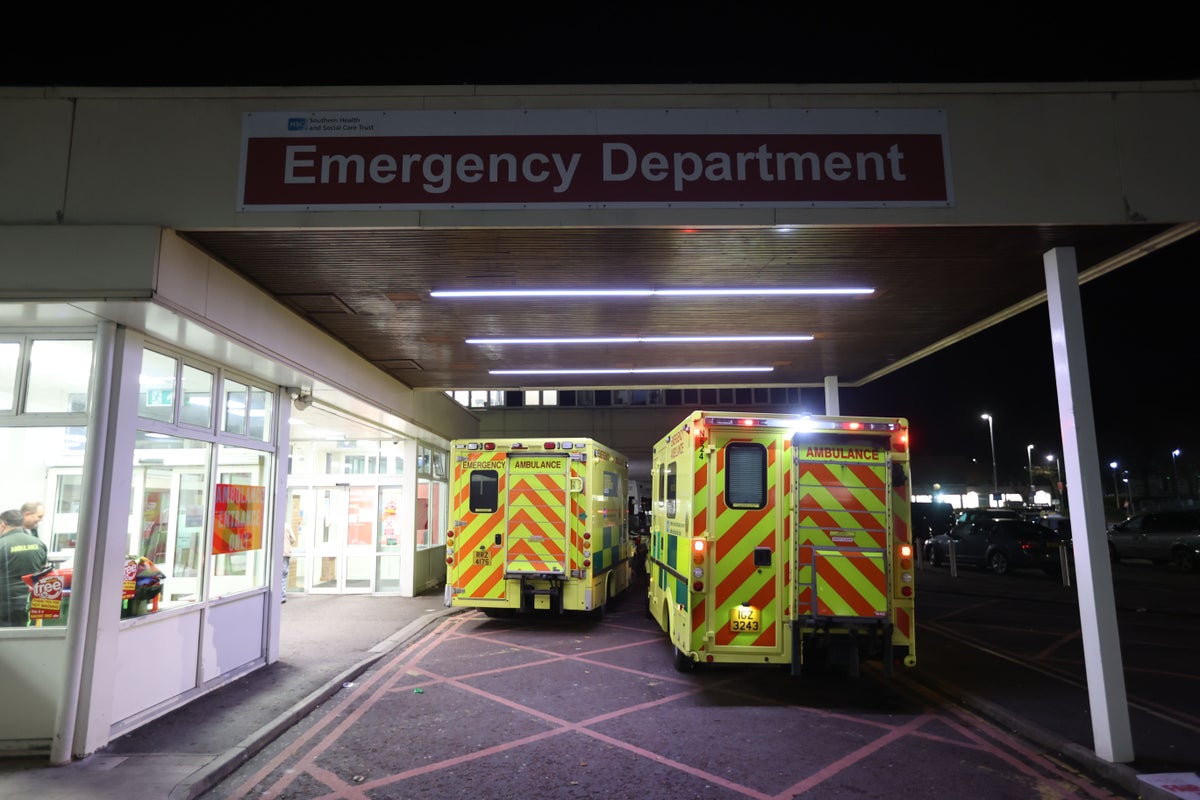
Concerns have been raised that elderly people “may well die” if there is no cover for trips and falls during ambulance strikes.
Health Secretary Steve Barclay said there was “still a question” over whether ambulance services would cover all emergency callouts during strikes.
Mr Barclay said officials planned to meet on Thursday to discuss coverage of category two callouts – which cover heart attacks, strokes, epilepsy and burns.
But he told Sky News that falls tended to come under a category three emergency and “at the moment the trade unions are saying those things wouldn’t be covered” but “the indication from the trade unions” is that conditions such as heart attacks will be covered.
Unions have said they will respond to life-threatening incidents – known as a category one call – when they strike on December 21 in a row over pay.
The GMB, Unison and Unite are co-ordinating industrial action across England and Wales after accusing the Government of ignoring pleas for a decent wage rise.
Commenting on the concerns over emergency care for falls, Dame Esther Rantzen told BBC Radio 4’s World At One programme it could be “very, very serious indeed” when an older person falls.
“I think that we need to be aware that if ambulances decide that trips and falls are actually not serious enough for them to send a driver, I think it could result in loss of life,” she said.
“I think particularly older people may well die because of the strike.”
Dame Esther, who founded the The Silver Line helpline, had a message for trade unions taking strike action, saying: “I think what we say is we value what you do, you are crucial in our lives. But the fact is you can make a difference, every day, between life and death.”
Mr Barclay told Times Radio: “We’ve got further talks with the officials tomorrow on what are called the derogations – which bits of the service that they will offer.
“They’ve said that they will continue to offer life-threatening service, so that’s the cat(egory) ones.
“There’s a question in terms of whether they will cover all the cat(egory) twos – those are the emergency responses to things like heart attacks and stroke – so it is hugely important that those are also covered.”
He said the category three and four calls were “still very important”, adding: “Clearly, if those are not covered because of the strikes, that places huge pressure.
“Of course, we can look at what contingency plans we can put in place, but they’re never going to cover the same amount as having 3,000 ambulances on the day, which is roughly what we have on a typical day.
“There is a risk if we can’t get ambulances to people.”
The strike will happen a day after members of the Royal College of Nursing stage their second walkout, also over pay.
The GMB said more than 10,000 ambulance workers across nine trusts in England and Wales would strike.
GMB representatives are set to meet individual trusts to discuss requirements for life-and-limb cover.
Unite general secretary Sharon Graham said: “The fundamental cause of the crisis in the NHS is massive understaffing, because workers are leaving the NHS in droves due to low pay and impossible workloads.
“Steve Barclay just doesn’t seem to get it. The first stage strategy to tackle the crisis involves creating a decent pay structure by making a decent pay offer. Otherwise the staff exodus continues and the crisis deepens.
Instead of speculating about the consequences of a strike, Steve Barclay should be focusing all his energies on stopping action from happening— Sara Gorton, Unison
“On average, every health worker’s real pay is worth some 20% less than it was in 2010. A porter’s pay is down 21% in real value and a nurse’s pay down 26%.
“It seems as one commentator said recently, the NHS staff are too important to strike but not important enough to get a decent wage.
“The Health Secretary has said his door is open but unless he is going to address pay increases which can begin to halt the staff exodus – and incidentally reduce the one billion being spent on agency staff every year – the NHS will continue to collapse.
“He needs to stop saying what he can’t do and start bringing forward real pay solutions.”
Sara Gorton, head of health at Unison, said: “The Health Secretary should be doing everything he can to stop strikes happening in the NHS.
“That means talking to health unions now about pay, which he’s refused to do so far.
“Ambulance managers will be drawing up cover plans for each service.
“Unions will discuss those and ensure appropriate responses to emergencies on strike days.
“But instead of speculating about the consequences of a strike, Steve Barclay should be focusing all his energies on stopping action from happening.”







